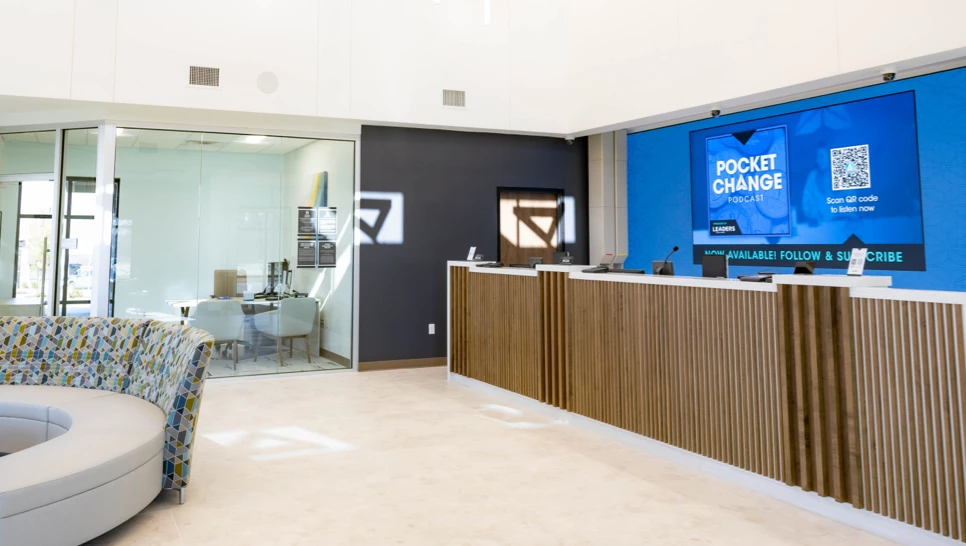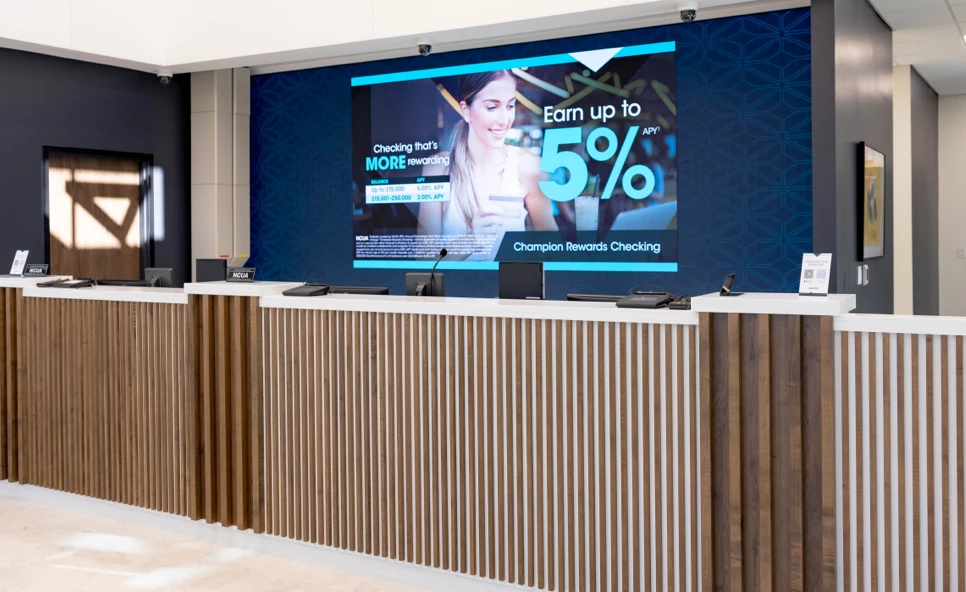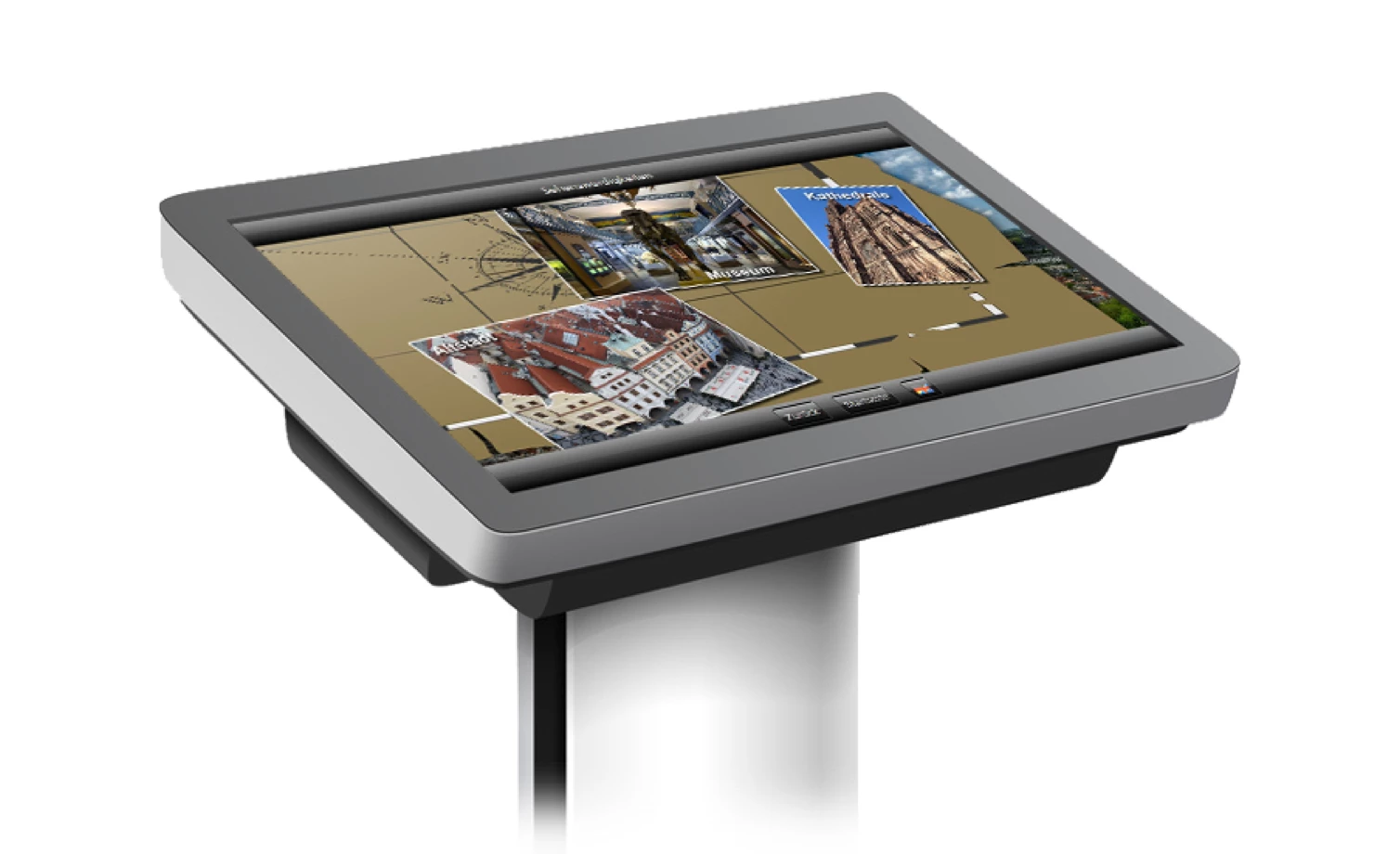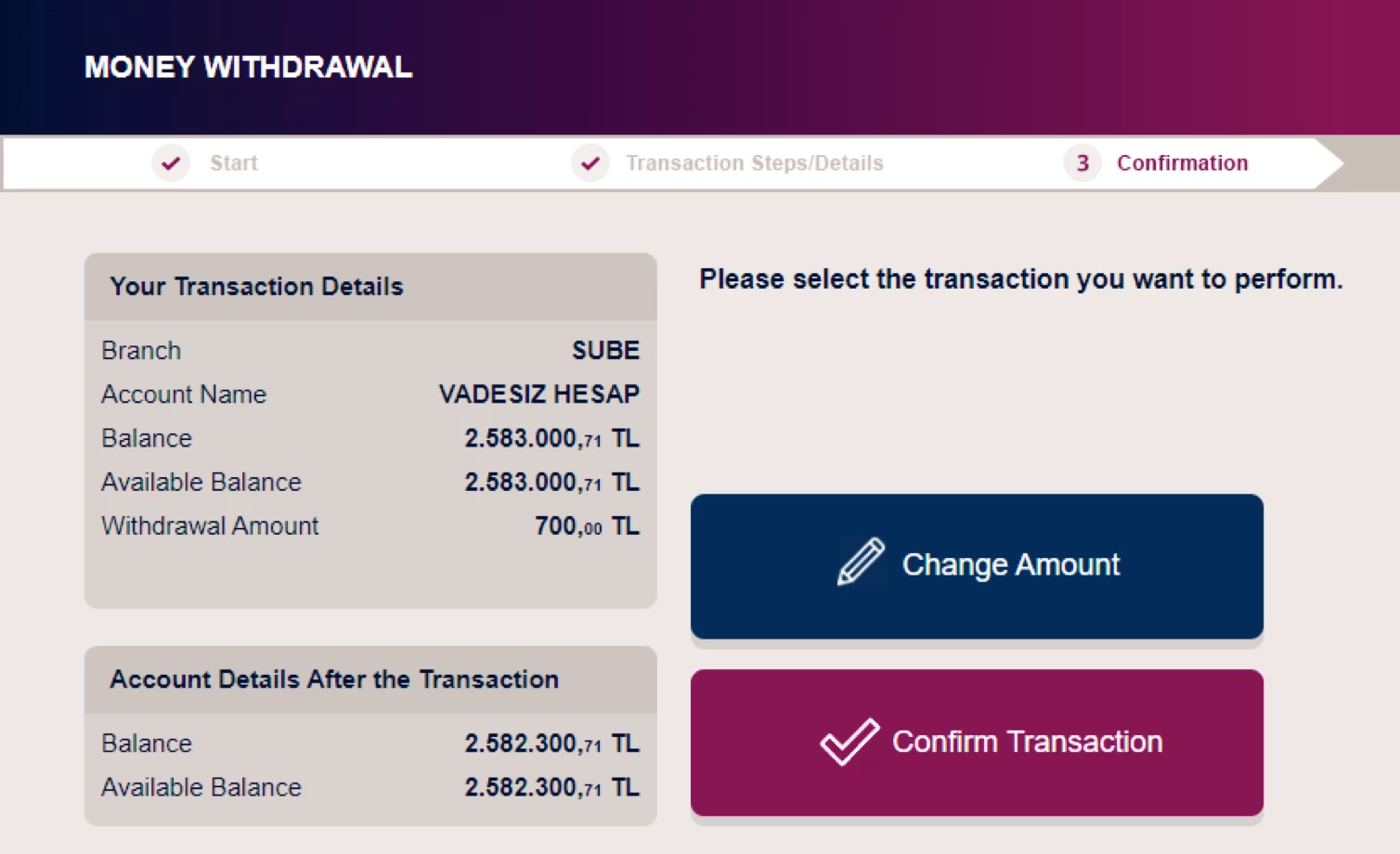Challenge
AdQue® informational and advertising solutions for digital signage are used in
multiple banking institutions and credit unions to deliver timely and relevant
information and offerings to their clients. Their touch-screen kiosks serve to
automatize and streamline customer interactions at service points.
Being in the digital signage market since 1998, the company has come a long way
from developing software to display information and ads as static imagery to
working with Flash® content for more dynamic engagement. However, content formats
evolved rapidly, and soon the company’s classical Windows Forms-based
applications, using Internet Explorer as a rendering engine, started falling
short of processing modern HTML-based visuals.
In order to continue providing top-notch advertising and communication solutions
in the highly competitive digital signage market, AdQue kept looking for ways to
modernize its software.
Solution
One of the obvious first steps was transitioning from the unmaintained Internet
Explorer to a more up-to-date Chromium™-based component as the content delivery
engine. The team spent some time experimenting with the Chromium Embedded
Framework, yet it required significant investment of time and resources to
develop and set up numerous required features from scratch. A crucial example of
this was the ability to natively play videos in MP4, which was becoming one of
the primary video content formats.
When the AdQue development team discovered DotNetBrowser, the library impressed
them with the extensive number of well-developed out-of-the-box features that
covered the majority of the team’s needs. The component’s extensive
documentation and code examples have made transition easy and swift, according
to AdQue’s lead developers.

Results
Upon integrating DotNetBrowser into its applications, the company has gradually
shifted from outdated content formats to flexible and multi-functional HTML.
Content can now be easily created and edited via the web platform, and then
displayed using DotNetBrowser on multiple client screens and POS terminals with
Windows-based desktop applications running on AdQue’s hardware.
The constantly updated Chromium-based browser component with the ongoing support
by its engineers has allowed AdQue to noticeably cut the effort for content
rendering and focus on further developing their product offering.
Innovative ad solutions, enabled by new content formats, allowed AdQue to stand
out among the intense competition and maintain lasting relationships with their
client base.




